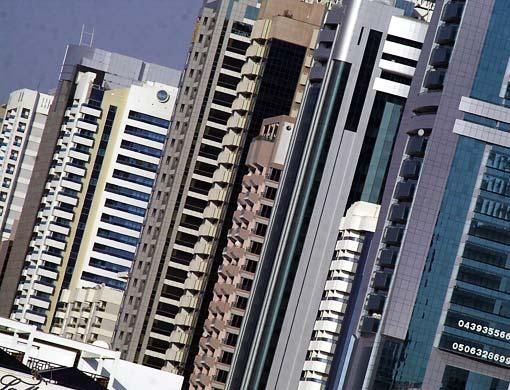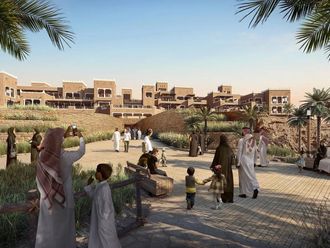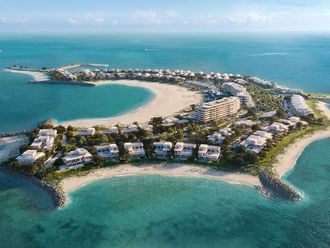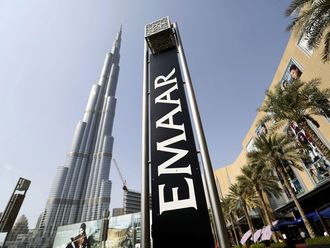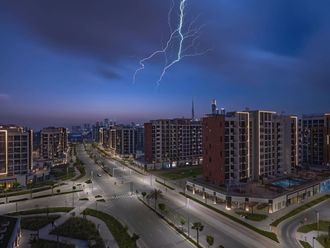Like many, upon arriving in Dubai you may need to find accommodation. You might well then ask yourself: "Which is a better option: renting or buying a place?"
Though there are several variables involved, it largely depends on one's personal situation. The two factors which loom largest are: how long you plan to stay, and what is your financial capability.
The general consensus among property consultants and brokers is that renting is a better option for those who are here for a shorter period, whereas buying is the way to go for those who have a long-term horizon.
With Dubai poised to continue its growth in the years ahead, the influx of people into various sectors will mean that the demand for both renting and buying will be high. Even with an overhang of supply currently waiting to take effect, it may still be a fair decision to book a place either to live in or as an investment.
Those who are here for three to five years or more and are still inclined to rent have to keep in mind that rents have kept on rising. There are landlords who are flouting the 15 per cent cap rule (for 2006) and hiking rents from anywhere between 20 per cent and 30 per cent, forcing many tenants to move to relatively cheaper locations. There are always others who move into the vacated accommodations because, in the current market, demand outstrips supply by a huge margin.
With an estimated 130,000 units coming online during 2007-08, that situation will ease, but experts believe there will not be a dramatic change. Rents will come down but only slightly, maybe 5-10 per cent, they say.
"A one bedroom apartment in Bur Dubai which now rents for Dh65,000 will not come down to Dh 45,000," says Sudhir Kumar, partner and executive director at Morison Consulting's Property Division. "It will at most come down to Dh60,000."
Ryan Mahoney, general manager of Better Homes, agrees. With the kind of growth Dubai is expected to witness, companies will be bringing in people, and they need apartments and villas. Those available will be quickly filled up.
"Dubai is a long-term story, and buying is a solid long-term investment," he adds.
The single most important reason for not renting is that you are not going to get a return; it's money wasted. Owning a home is one kind of savings. The value of the property is generally expected to go up in Dubai for the next few years that is good enough reason to buy, say experts. In the last couple of years, people in Dubai who have bought property even when they have bought it in a secondary market at a premium have witnessed reasonable capital growth.
"They are still seeing a bit of capital appreciation, which will always be there as long as Dubai continues to grow and there is a continuous influx of professionals in various sectors. But, yes, those Palm Jumeirah villas which were bought for Dh2.8 million initially but are now going for Dh9 million will see a small correction in about a year," Kumar suggests.
For those considering the underlying buy versus rent dilemma, Andrew Chambers, managing director of Asteco, the UAE's largest property management company, has some advice. "To a lot of people who are not sure whether to buy or not, I tell them: rent for the first year. You don't know whether you will like the place or not, whether your job will go well or it won't. You need time to decide whether it suits your work, your social life and your children's schooling."
The decision to buy in Dubai, or for that matter anywhere else in the world, also depends on one's financial position and lifestyle choices.
You have to pay at least the 10 or 20 per cent down payment. For those going for a loan from a bank or a mortgage house, it's a good time to borrow when there is negative real interest, i.e. compared to inflation. Apart from mortgage payments, there are the upfront costs of an agent's commission and bank's mortgage registration fees and sometimes even the developer's registration's fees. Then there are the upkeep costs such maintenance and service charges.
Outgoing payments to buy should be no more than equivalent to whatever maximum rental payment you otherwise had in mind. The expert consensus is only buy what you can afford which means having a proper financial planning before making that big step.
Pros:
1. Best bet for long-term residents who can afford the down payment
2. Fixed monthly payment for the term of the mortgage
3. Opportunity for selling the property at a profit
4. Equity added meaning saving money
5. The property can be leased for a monthly income
Cons:
1. A large chunk of money needed for down payment
2. Costs beyond the mortgage payments such as closing costs, finance fees, etc.
3. Subject to interest rates fluctuations
4. Maintenance costs
5. Issues of escrow accounts and condominium laws are yet to be resolved
Your comments
As a Canadian citizen can I buy a property in Dubai and get a mortgage approved from a bank in Dubai?
A Tuli
Toronto,Canada
If you can realy afford, it is 100 times better to buy then living on rent. In some places the installments are less than what we are paying as rent.
Umar
Dubai,UAE


